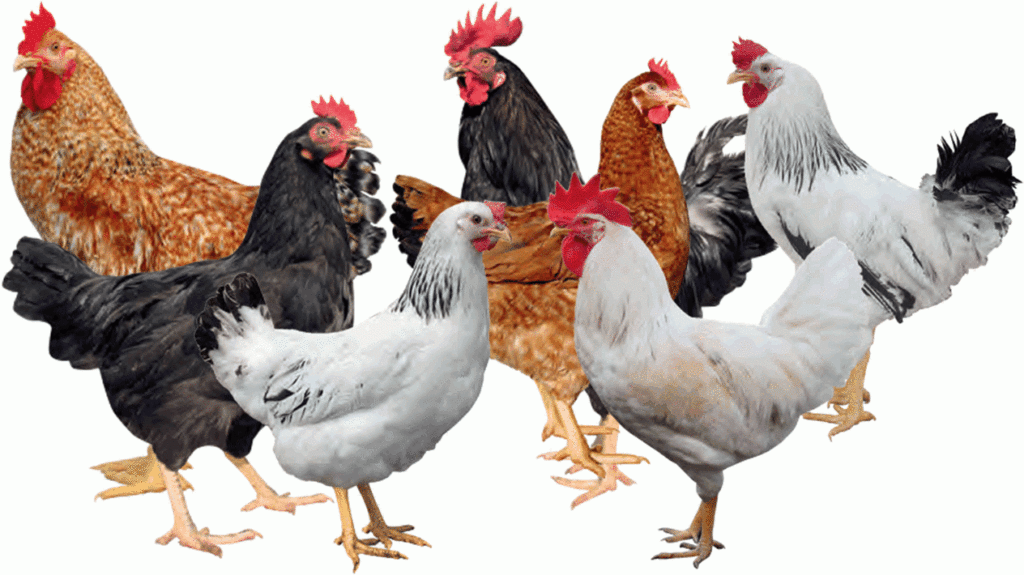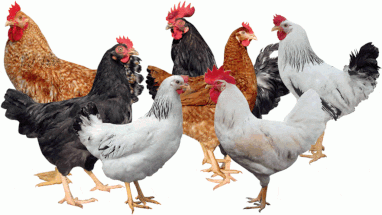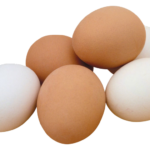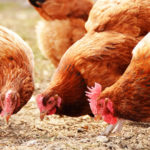
There are various chicken breeds in Kenya and farmers choose which ones to raise depending on their unique circumstances and the characteristics of the birds. While most provide dual purposes i.e. are raised for both eggs and meat, the varieties differ in their maturity periods, number of eggs laid, adaptability, resistance to diseases among others. While there are several breeds in Kenya, five breeds have gained mass acceptability in the market and can easily be purchased in Kenya by anybody intent on starting a poultry business.
Original kienyeji
This is the original pure breed of indigenous chicken unadulterated by research. They are mostly scavengers and are very resistant to diseases. Their maturity period is six months and they lay an average of 3 to 10 eggs a month. They are normal feeders and can be raised partly by local kitchen waste and left to scavenge for food in within the compound. They are raised for both meat and eggs are originated from various places in the planet. Its meat and eggs are very popular in the market and are preferred by most Kenyans. Anybody desiring to raise them can acquire from another farmer who breeds them.
Kenbro
Kenbro chicken is a product of Kenchic Limited and can be acquired through their factory at Industrial area Nairobi. They are heavy feeders and have low resistance to diseases. They lay an average of 20 to 25 eggs a month and have a maturity period of 4 to 5 months.
Kari improved kienjeji
This is a type of chicken that came about as a result of breeding research by the Kenya Agricultural &Livestock Research Organization (KALRO). It is the result of breeding different types of indigenous chicken in Kenya from different areas. In this research KALRO sought to look for and marry unique characteristics in the chicken like high egg production, faster growth and good feed to meat conversion. The result was a cadre of chicken with pedigree characteristics that almost rival some exotic breeds. They lay more eggs in a cycle or an average of 15-20 eggs a month, mature faster that at four months they may weight approximately 1.2kg and are ready for the market as meat. They however still start laying eggs at six months just like the other kienyeji (indigenous birds). KARI improved birds do not sit on eggs though in farms through association with other pure indigenous breeds, several have been known to sit on eggs and raise chicks. Their feeding is normal and should not worry any farmer and they have high resistance to diseases. They are raised for both eggs and meat. The KARI improved variety can be ordered from the KALRO headquarters in Naivasha, Kenya or through their approved agents.
Rainbow rooster
The Rainbow Rooster is a type of improved indigenous chicken that is a result of Indian research at the Indbro Research Breeding farm in Hyderabad. Locally chicks and eggs can be acquired through the local license holder Kukuchic Limited in Eldoret. Rainbow Rooster lays between 20 to 25 eggs a month and has a maturity period of 4 months. They are medium feeders, have low resistance to diseases
Kuroiler
Kuroiler is also a type of improved kienyeji chicken that was developed in India by Kegg Farms Limited. They are medium feeders and lay between 18 to 20 eggs a month and have low resistance to diseases. Though the approved agent is in Uganda, there are a number of local farms that sell Kuroiler eggs and chicks like Crown poultry in Mombasa and farms in Nakuru and other parts of the country.
To facilitate learning, most farmers keep more than one variety in order to learn their various characteristics and eventually choose which type they prefer and those which their target market readily accepts. Some of the local breeders like Kukuchic and kenchic deliver chicks ordered on arrangement while others have to be picked at source.
Contact the breeders directly and make your orders and transport arrangements.


